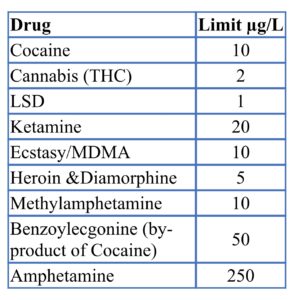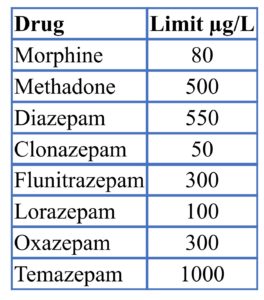None for The Road – the Christmas drink drive campaign
With Halloween and Bonfire Night behind us it now won’t be long before Christmas is in our sights and the Christmas party season gets underway. It means that it is now time for the Christmas drink drive campaigns from your local police forces.
We will now all be familiar with the national police initiative that coincides with this time of year. Once again the police will be targeting drink driving. Forces across the country prepare for a spike in the numbers of those tested and arrested for drink driving and drug driving offences. This in part is due to an increase in police patrols dedicated to seeking out drink drivers and part as a result of the time of the year.
The more visible presence is in order to deter those who may think about drinking and driving.
The impact of a drink drive conviction
People may not view these offences as particularly serious when judged against other types of offences. What is not often understood is the very real impact that the consequences of a drink drive conviction can have.
Research shows that the loss of a driving licence leads, in a great many cases, to loss of employment. This in turn can lead to a loss of housing as bills cannot be paid. Sometimes a disqualification from driving could be the final straw that breaks a relationship. The financial costs flowing from a driving ban will be felt for many years thereafter. Insurance premiums will be greatly increased.
Driving the morning after
As experienced road traffic solicitors we also see a great many people who come before the courts with alcohol readings that are not particularly high. This might be where offences have been detected the ‘morning after’. In such cases, offences can be said to have been committed perhaps more out of ignorance than due to a wilful disregard for the safety of others.
A single error of judgment can have devastating consequences.
What is a safe level of drinking if I propose to drive?
No alcohol at all is the safest approach to adopt. It ensures that when a driver gets behind the wheel, their reactions will not be impaired to any degree at all.
Crucially it also prevents the driver getting the guesswork wrong as to how much can be drunk before a person is over the limit. It is this mistake that brings so many people before the courts.
There are urban myths in circulation such as ‘2 pints are ok’. These have long since been proved to be false, as have back of the envelope calculations as to how long it takes alcohol to leave the body. Sleeping of a heavy drinking session will not speed up the rate at which alcohol leaves your body. A big meal may slow down the rate at which you absorb alcohol, but you will end up with the same amount of alcohol in your system.
Different people will deal with alcohol in different ways. This can even vary for one person depending on a multitude of factors. Merely feeling okay to drive is not a reliable indicator as to whether a driver is below the legal limit or not.
As we get merry, we reach a tipping point. We can make foolish choices that will prove costly, sometimes not just measured in financial terms but in injury and even loss of life.
Think, before you drink, before you drive.
You do not hear a lawyer say this often – but we do not wish to see you this Christmas as a result of the Christmas drink drive campaign.
How we can assist with your drink drive case
If you do make a mistake and find yourself in trouble, there is a lot we can do to assist you.
The police must follow complex procedures to establish a case against you. Our lawyers will be able to analyse the evidence to ensure that the procedures have been followed. We can successfully challenge the evidence in your case.
A road traffic solicitor can also investigate issues such as ‘laced drinks’ which can raise the opportunity to avoid disqualification. We will also consider other ‘special reasons’ that could be raised on your behalf. This might include the shortness of distance that was driven.
Well-presented mitigation can make a real difference to the outcome. Even where a disqualification cannot be avoided, we can often achieve a reduction in length.
Legal aid might be available dependent upon your means and the circumstances of your case. Alternatively, you will be able to fund your case through an affordable fixed fee.
Contact one of our drink drive solicitors at your nearest office if you are being investigated by the police or taken to court as a result of the Christmas drink drive campaign. They will, of course, be able to discuss and other driving matters that you face.
Alternatively you can use the contact form below to ask for a call about your case.
Contact








